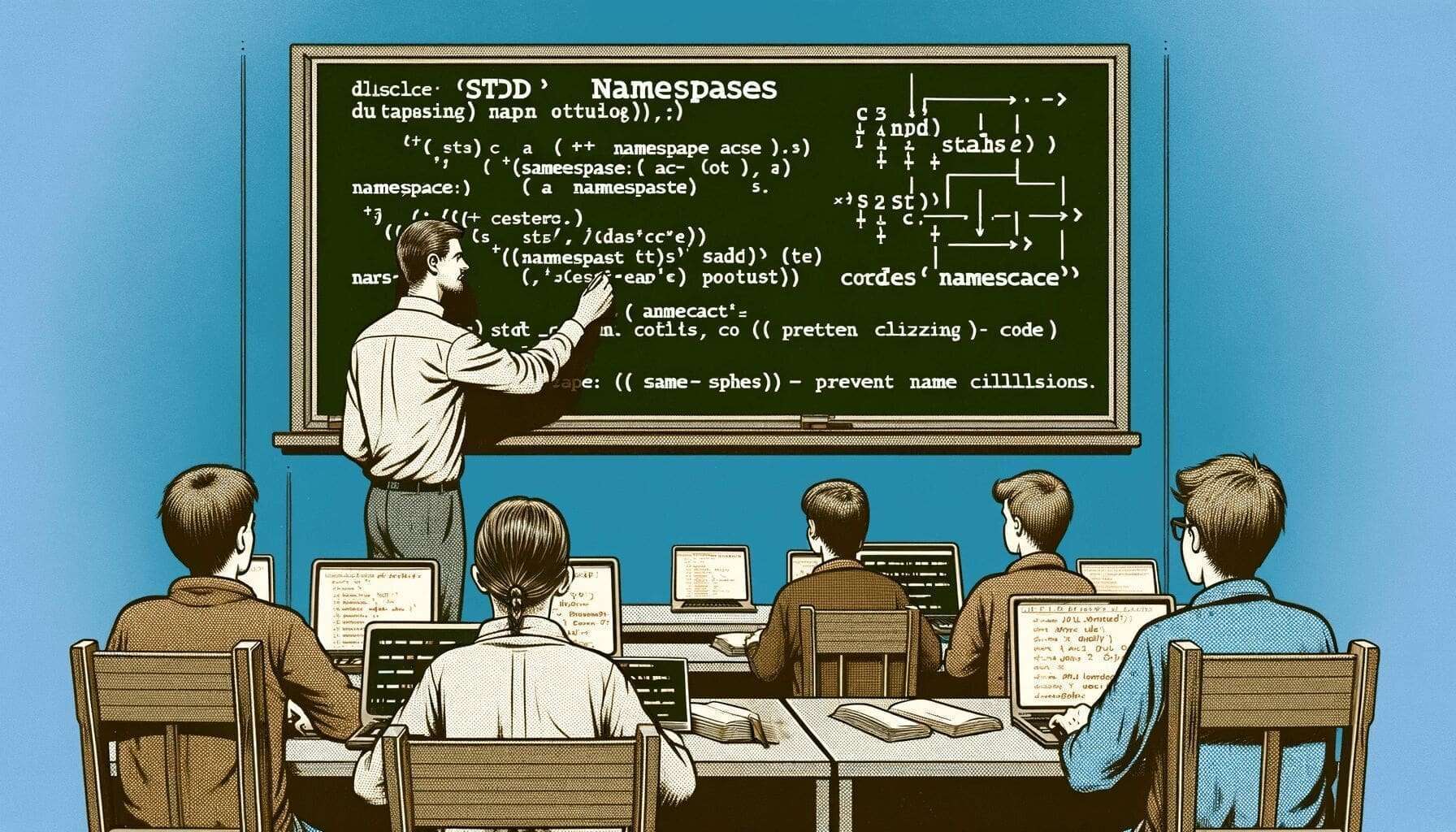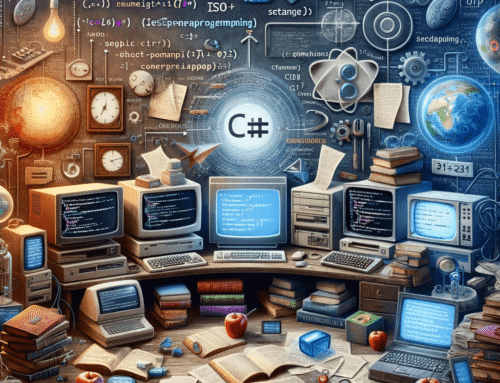
FAQ: Define ‘std’?
FAQ
Approx read time: 2.6 min.
Define 'std'?
Not the std from your ex. Digital 'std' namespace for C++
What is a Namespace?
In C++, a namespace is a way to organize code into logical groups and to prevent name collisions that can occur especially when your code base includes multiple libraries. Think of it as a way to categorize functionality. For instance, you might have a namespace for math functions and another for graphical functions. Namespaces help to group these functionalities separately.
The std Namespace
std is an abbreviation for “standard”. The std namespace is special because it’s used by the Standard C++ Library. This library is a collection of classes and functions, which are written in the core language. The Standard Library provides several generic containers, functions to utilize and manipulate these containers, function objects, generic strings and streams, support for some language features, and everyday functions for tasks like finding the size of an array or a string.
Why Use std?
When you include parts of the C++ Standard Library in your program, you often see std:: before many of the library’s features. This is because these features are part of the std namespace. Here’s why it’s used:
Avoids Name Conflicts: Without namespaces, you could accidentally write a function or class that has the same name as one in the C++ Standard Library or another library. Namespaces help avoid these conflicts.
Clarifies Code: Seeing std:: lets you and others know that the following code is coming from the C++ Standard Library.
How to Use std?
You can use the std namespace in two primary ways:
Prefix with std::: When you use a function, object, or class from the Standard Library, you precede it with std::. For example, to use the cout function to print something to the console, you write std::cout.
Using Declaration: If you include the line using namespace std; at the beginning of your program, you can use everything in the std namespace without having to put std:: in front of it. For example, you can just write cout instead of std::cout. However, be cautious with this method. While it can make the code look cleaner, it can also lead to name conflicts in larger programs, especially if you’re using multiple libraries.
Example:
Without using namespace std;
"`cpp
#include
int main()
"`
With using namespace std;
"`cpp
#include
using namespace std;
int main()
"`
Both programs do the same thing, but the second one uses using namespace std; to avoid having to put std:: before cout and endl. As you continue learning C++, you’ll encounter std quite frequently, as it’s an integral part of writing C++ programs that use the Standard Library.
Related Posts:
Learn Modules and Packages in Python programming(Opens in a new browser tab)
What are the differences between C++ and Java?(Opens in a new browser tab)
Learn about programming Classes and Objects in Python(Opens in a new browser tab)
What is negative Infinity in JavaScript?(Opens in a new browser tab)
The Python Standard Library Ver 3.6.5(Opens in a new browser tab)









